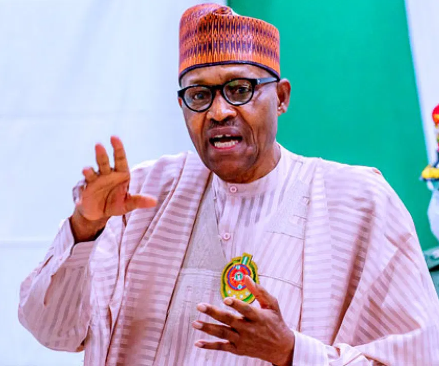
President Muhammadu Buhari has given a marching order to the Central Bank of Nigeria, CBN, not to give any money for food importation in the New Year.
Buhari said his administration would keep a keen eye on food inflation in the New Year while giving a strong directive to the CBN.
Speaking at the fifth regular meeting with the Presidential Economic Advisory Council held on Tuesday at the State House in Abuja, President Buhari directed that the CBN “must not give money to import food. Already about seven states are producing all the rice we need. We must eat what we produce.”
In taking note of the strides made in agricultural production following the programme of diversification from over reliance on oil instituted by his administration, Buhari wondered where the country would have found itself by now in view of the devastating economic crisis brought about by COVID-19 if the country had not embraced agriculture.
“Going back to the land is the way out. We depend on petrol at the expense of agriculture. Now the oil industry is in turmoil. We are being squeezed to produce at 1.5 million barrels a day as against a capacity to produce 2.3 million. At the same time, the technical cost of our production per barrel is high, compared to the Middle East production,” he said.
Buhari emphasized the place of agriculture in the efforts to restore the economy but agreed that measures must be put in place to curtail inflation in the country.
“We will continue to encourage our people to go back to the land. Our elite is indoctrinated in the idea that we are rich in oil, leaving the land for the city for oil riches. We are back to the land now. We must not lose the opportunity to make life easier for our people. Imagine what would have happened if we didn’t encourage agriculture and closed the borders. We would have been in trouble,” he said.
The meeting, which was for a review of, and reflections on the global and domestic economy in the outgoing year, was attended by the Vice President, Professor Yemi Osinbajo, as well as Ministers of Finance and Humanitarian Affairs and agreed on a number of measures.
In specific terms, it noted the sharp deterioration in international economic environment and its impact on Nigeria’s continuing but fragile economic recovery; that Nigeria’s economic growth continues to be constrained by obvious challenges including infrastructural deficiencies and limited resources for government financing.
It emphasized the need to make the private sector of the economy the primary source of investment, rather than government.
The meeting reviewed progress towards structural reforms in response to the economic crises, including the institution of the Economic Sustainability Plan, the changes in electricity tariff and fuel pricing regime, the partial re-opening of the Land Borders, the movement towards unification of exchange rates and budgetary reforms through Finance Bill 2020 and 2021.
It agreed that, to prepare the country for the challenges ahead, it is imperative to ensure Macro-economic stability, create certainty and re-build investor confidence in the economy. It emphasized the need to deepen structural reforms initiated by the administration as a basis for stimulating investments from domestic and international sources with a view to raising productivity in key sectors of the economy.